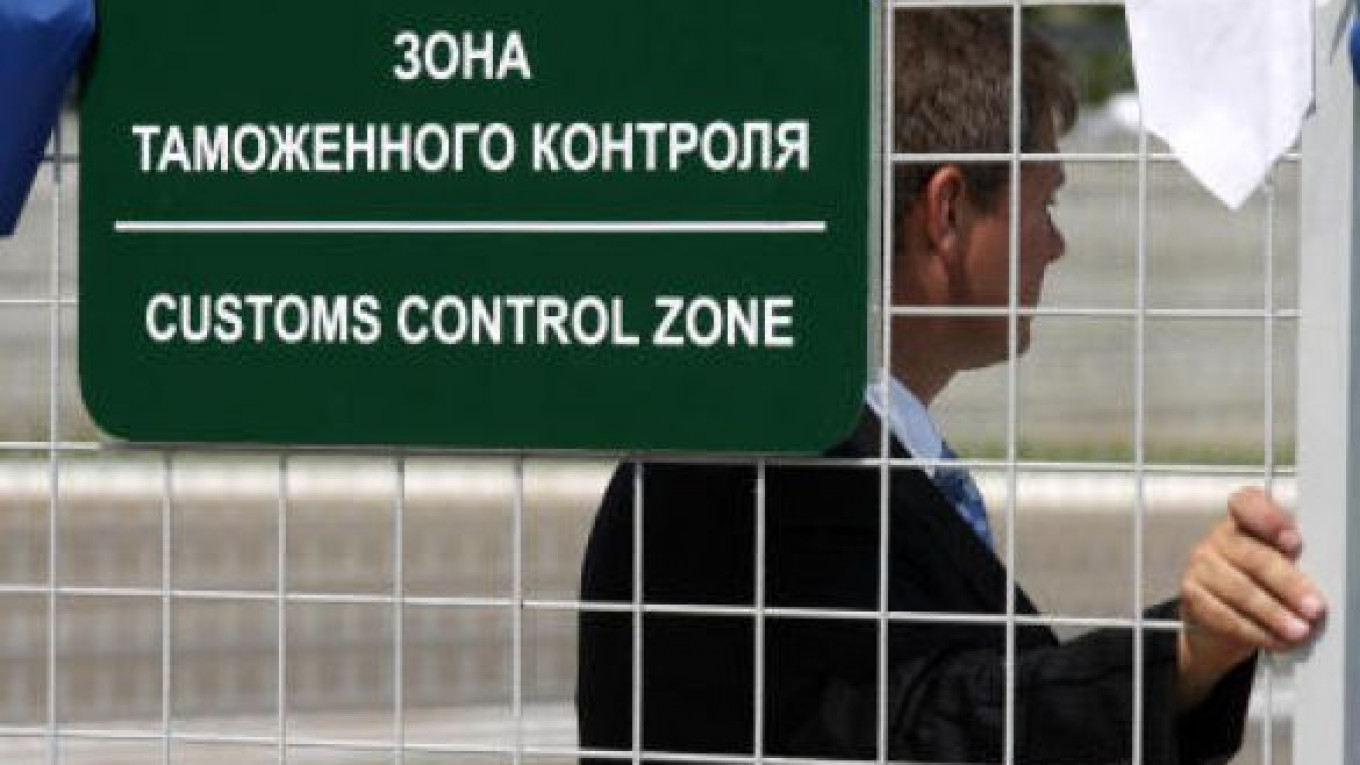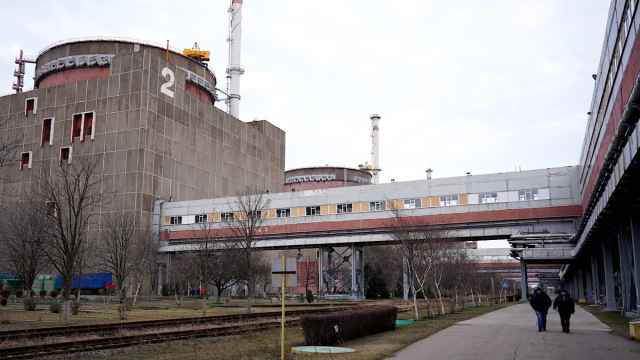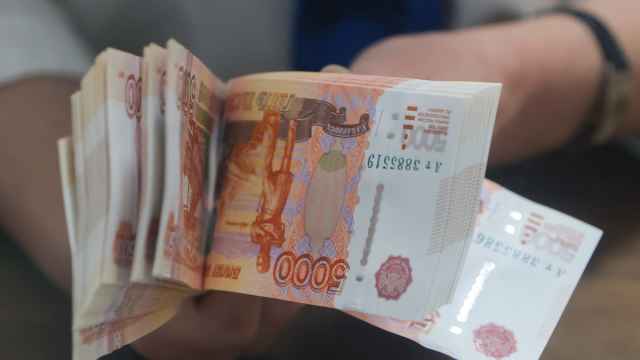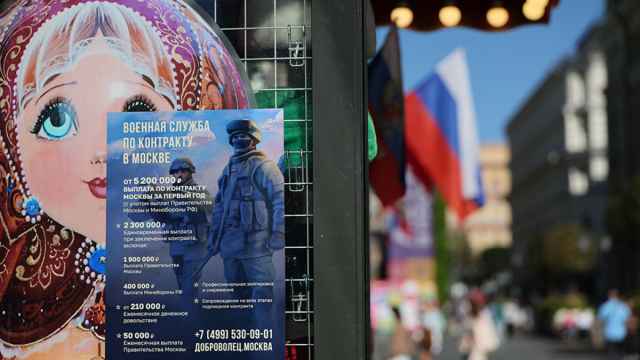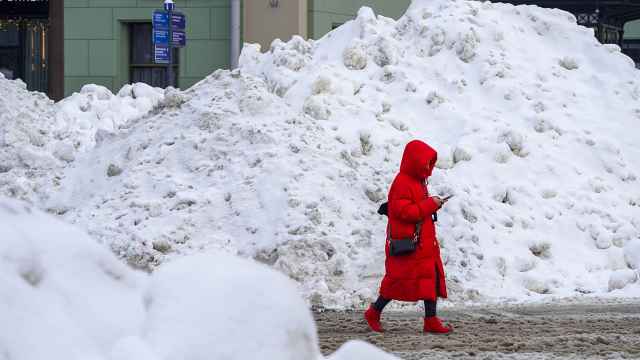As Ukrainian producers complain of sudden harsh scrutiny at Russian customs and Gazprom reports a drastic decrease of gas sales to Ukraine, relations between the two countries seem to have plunged to a new low, experts said.
Since Aug. 14, all Ukrainian producers have been classed as "high risk" by Russian customs authorities. Shipments are subjected to full rather than selective checks, meaning delivery delays and financial losses for the exporters, the Ukrainian Employers Federation said in a statement.
The Russian Federal Customs Service fired a warning shot in July, slapping high risk designations on 40 Ukrainian producers. But the sudden expansion of the list this week was unprecedented. A high risk classification means the company is suspected of having deceived customs in the past and its goods have to be scrutinized meticulously before being cleared to cross the border.
The Ukrainian Employers Federation, which represents 8,500 companies that make up 70 percent of the country's GDP, said risk prevention measures at the Russian border have been scaled up to the point that a de-facto ban on imports from Ukraine is now in place.
The Federal Customs Service on Thursday declined to comment on the situation.
Though no new official trade limits have been introduced, since Aug. 14 customs inspections at the border have become overwhelming, said Metinvest Group, Ukraine's largest mining and steel company and one of the country's key exporters to Russia.
"[Customs] began checking all steel products imported from Ukraine for certificates proving their origin and sending samples to Moscow for verification, a procedure that can take up to two months," the company said in a statement.
The authenticity of Metinvest products has never been questioned before, the company said, adding that the new customs procedures greatly complicate deliveries, driving up costs not only for Ukrainian exporters, but on Russian importers as well.
Export volumes from Ukraine to Russia for the second half of the year were estimated at $8.5 billion. The trade deficit provoked by the aggressive new customs regime is expected to cost Ukraine from $2 billion to $2.5 billion, according to the employers federation, depending on Russia's actions. Overall, Ukrainian production output could fall by as much as 8 percent and its GDP could be cut down by 1.5 percent.
As the former CIS partners descend into what experts are calling a trade war, Russia's energy giant, Gazprom, reported its operational results for the second quarter. While its overall gas exports grew by almost 10 percent since last year, exports to Ukraine fell by nearly 40 percent. Having been the main importer of Russian gas less than two years ago, now Ukraine is ranked only fifth.
Responsibility for the collapse in volumes seems to lie with Ukraine: At the beginning of the year, top officials said the country would limit its gas imports from Russia to minimum levels.
Gazprom, in turn, is making efforts to direct gas exports to Europe through the new North and South Stream pipelines, bypassing its Ukrainian transit partner.
"The obvious decline in cooperation on the gas market between Russia and Ukraine is only another stage in their trade wars," investment analyst Timofei Sholtes said, Noviye Izvestiya reported.
The conflict is destructive for both sides, he said. For Ukraine, with its energy-dependent economy, there is no real alternative to Russian gas imports. As for Gazprom, Ukraine's pipeline network — which still transports three-quarters of the company's European deliveries — is the cheapest export route to Eastern European countries.
Ukrainian politicians said the reason behind the ongoing friction with Russia was the Kremlin's desire to sabotage its neighbor attempts to form an alliance with Europe and maneuver the country back toward the former Soviet states.
"The ban on imports of Ukrainian goods into Russia is nothing but Russian pressure in order to force Ukraine to join the Customs Union," Arseny Yatsenyuk, leader of opposition party Batkivshchyna (Fatherland) said, Reuters reported.
Ukraine's long-nurtured plans were to sign free trade and political association agreements with the European Union. Negotiations have stalled due to EU concerns over the state of law in Ukraine, but the latest remarks by European Commission officials suggest agreements could be signed as early as this November during the East Partners summit in Vilnius.
The time has come for Ukraine to choose a side, said Sergei Miheyev, general director of the Center of Political Environment think tank.
Over the past 10 to 15 years, Ukraine has enjoyed favorable trade conditions with Russia, among them the ability to import gas at Russian low domestic prices, he said. Russia has long waited for similar perks in return, but Ukraine has instead turned away to embrace Europe.
"They think they can have their cake and eat it forever. They harp on about how bad Russia is, form close ties with Europe and then expect preferential treatment and open markets here," Miheyev said. "Why doesn't Ukraine offer its goods to Europe? Maybe there they will sell better."
Contact the author at [email protected]
A Message from The Moscow Times:
Dear readers,
We are facing unprecedented challenges. Russia's Prosecutor General's Office has designated The Moscow Times as an "undesirable" organization, criminalizing our work and putting our staff at risk of prosecution. This follows our earlier unjust labeling as a "foreign agent."
These actions are direct attempts to silence independent journalism in Russia. The authorities claim our work "discredits the decisions of the Russian leadership." We see things differently: we strive to provide accurate, unbiased reporting on Russia.
We, the journalists of The Moscow Times, refuse to be silenced. But to continue our work, we need your help.
Your support, no matter how small, makes a world of difference. If you can, please support us monthly starting from just $2. It's quick to set up, and every contribution makes a significant impact.
By supporting The Moscow Times, you're defending open, independent journalism in the face of repression. Thank you for standing with us.
Remind me later.


